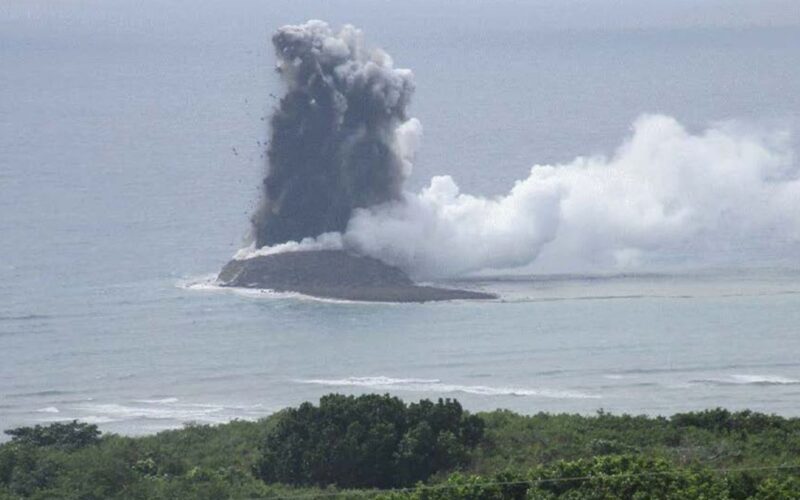November 13, 2023 – In a spectacular display of the Earth’s dynamic geological forces, Japan, renowned for its diverse islands shaped by volcanic processes, has recently witnessed the birth of a new island near the Ogasawara island chain. This extraordinary event unfolded following the eruption of an underwater volcano in late October 2023, offering a captivating glimpse into the ever-changing nature of our planet.
The nascent island, yet to be christened, spans approximately 100 meters in diameter and emerged through phreatomagmatic eruptions. These eruptions, triggered by the interaction of magma with seawater, resulted in explosive releases of ash and steam, sculpting the newfound landmass. The eruption commenced on October 21, 2023, about 1 kilometer off the coast of Iwoto Island, formerly known as Iwo Jima, a site of historical significance marked by intense World War II battles.
Lasting for about ten days, the eruptions led to the accumulation of volcanic material on the shallow seabed, eventually breaching the sea’s surface and forming the latest addition to the Ogasawara island chain. This occurrence is not unprecedented in the region, as the Bonin Islands have experienced similar volcanic activity in the past, with the most recent island formation event taking place in 2013 due to another underwater volcano eruption.
Associate Professor Fukashi Maeno, affiliated with Tokyo University’s earthquake research institute, has officially confirmed the occurrence of phreatomagmatic eruptions near Iwoto. Site examinations in late October revealed that smoke and ash reached heights exceeding 50 meters, observed at regular intervals during the eruptions. According to Maeno, the formation of the new island indicates a resurgence of magmatic activity in the area. While the island’s dimensions and structure may evolve with ongoing eruptions, there is also the possibility of it submerging beneath the sea’s surface.
Reports suggest that the longevity of the newly formed island might be limited due to its composition of delicate volcanic rocks susceptible to erosion by oceanic waves and currents. Experts propose that its lifespan could be extended if covered by more resilient substances such as lava, contingent on the potential resumption of volcanic activity in the area.
This recent geological spectacle serves as a poignant reminder of the Earth’s ever-changing nature, where islands can emerge and disappear as a result of the powerful forces that shape our planet.
